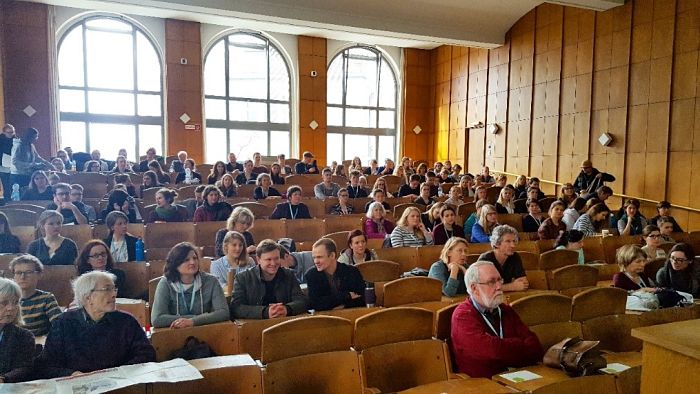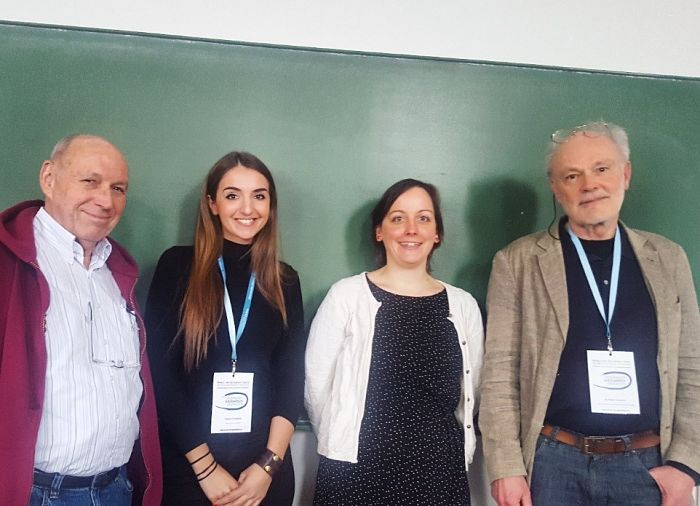Press note: The Forever Lobbying Project investigation finds that the clean-up of per- and polyfluoroalkyl substances (PFAS) contamination in Europe could cost 100 billion euros annually. Health-related costs for PFAS exposure are estimated to reach up to 84 billion euros annually. With these revelations, combined with the mounting scientific evidence on PFAS’ grave health impacts, it is clear that the European Commission must ensure a robust EU-wide PFAS restriction and come up with a plan to address these costs as part of the Clean Industrial Deal.
In March HEAL participated in Germany’s biggest public health conference titled ‘Poverty and Health’ (Armut und Gesundheit), to discuss the health impacts of climate change, its link to poverty, and what health actors can do to support healthier energy choices.
The Public Health Congress ‘Poverty and Health’ in Berlin is seen as an information platform on current topics in the field of public health. About 500 speakers have already participated in the programme, which has involved more than 100 events in recent years.

HEAL’s Climate Change and Health Coordinator Vijoleta Gordeljevic and HEAL’s Senior Policy Officer for Energy and Health Julia Gogolewska joined the conference on 16 – 17 March, where they led a professional forum titled “Climate change and health – biggest threat or opportunity for global health?”.
Together with Dr med. Winfried Zacher of Germanwatch e.V. and Dr med. Dieter Lehmkuhl, two doctors active in the German climate health movement, Vijoleta discussed the topic in front of an audience of circa 150 public health professionals, aiming to raise awareness on climate change among German public health community and to identify possibilities of engagement.
So far, there is little debate on the link between climate and health in the German public health sector, despite climate change being considered “the greatest challenge to health in the 21st century” by one of the world’s leading medical journals, the Lancet.
During the first part of the presentation, Vijoleta detailed the results of the Lancet study published in 2015 and supplemented it with the latest recommendations from the WHO Climate Conference in Paris 2016.
The Lancet and WHO both agree the global impact of climate change is going to affect people worldwide unequally. Elaborating on that topic, Dr med. Winfried Zacher of Germanwatch e.V. discussed why the social mapping of health consequences must be given a central place in the debate on climate change making the link to the conference’s focus on poverty. Finally, Dr med. Dieter Lehmkuhl shed light on what the health sector could do and what exemplary projects already exist in other countries. With that, important international initiatives and activities were presented and participants were encouraged to develop their own initiatives.

The presentation successfully brought together enthusiastic and interested public health experts, responding with many questions and comments on the talk. The link to the official conference website can be found here: http://www.armut-und-gesundheit.de/.


